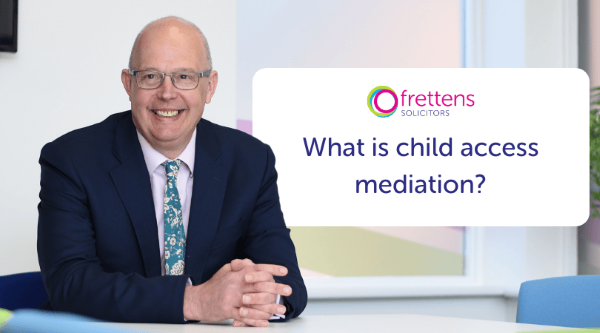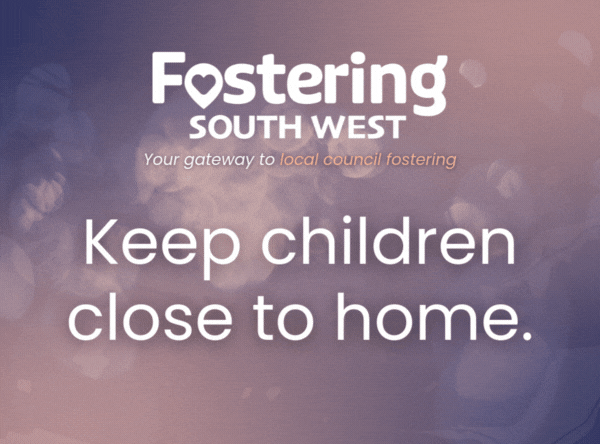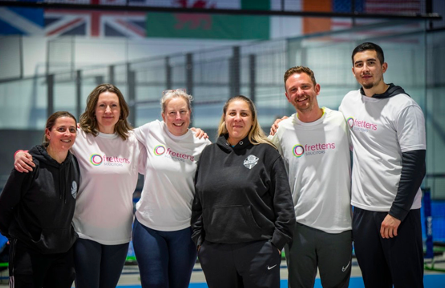In case you missed it see what’s in this section
Let's Talk
Your Total Guide To business

What happens at mediation for child custody?
Decisions about arrangements on where and who children should primarily live with after parents have separated is in the first place something that the Courts expect and hope can be decided between the parents themselves.
Usually both parents have Parental Responsibility for their children.
You can read the previous article on Parental Responsibilities here.
If parents agree about the living arrangements, then there is no need for the courts to be involved. Therefore, what is agreed between the parents is how they will arrange their children lives without Court interference.
Sometimes it isn’t always easy to discuss these matters directly with your former partner and this is when a mediator can help you. They will help you both work towards coming to an understanding as to what your children’s lives might look like.
What can a mediator do and not do in child custody?
As a mediator I cannot give specific advice to either party. However, I can give information about what, in my experience, the Courts will be looking at.
Having been a family specialist for over 30 years I can give both parties information based on that experience as to the approach a Court may take to any possible solutions being suggested.
Do I have to do mediation before applying for a child arrangement order?
The Courts will expect parents to have tried all possible avenues regarding reaching an agreement before an application is made to the Court.
However, if there is a real emergency that means the Court needs to deal with something that is an immediate threat to a child’s welfare then there is no expectation of this.
The Court now has the power to put an application on hold if they think that alternative methods have not been seriously/properly tried.
Mediation is the most common form of Alternative Court Dispute Resolution (ACDR) and the Courts will expect it to have been tried.
The mediator will be able to sign a Court Application confirming that it has either not been successful or that it isn’t appropriate in those circumstances.
What is mediation for child access?
Child arrangements as they are now known, consider who the child or children should live with (residence). As well as how much time and what type of time they should spend with the other parent (contact or access).
A mediator can help you explore the various scenarios that are being suggested and what they may look like in terms of benefitting the children and how it might work.
There doesn’t need to be a court order made but a clear agreement confirmed in writing gives parents and children a template to work with. It also gives a degree of certainty which children very much benefit from.
What is parental mediation?
Parents who have separated can use the mediation process to work towards common ground regarding the time that their children live with each parent. It can also inform how they communicate with each other about important matters such as medical and dental appointments and other matters that may arise.
What are the 5 stages of family mediation?
1. Preparation:
This initial stage involves the parties agreeing to mediate and exploring possible mediators.
One of the parties will then approach the chosen mediator and make contact with the other party to arrange for the first one to one meeting.
Parties may also be asked to review the mediation agreement that they will be entering into in due course.
2. One to one meeting with each individual Party:
The mediator then introduces the process, explaining the rules of mediation, and establishes confidentiality.
Parties will also be invited to discuss what their priorities are and what their concerns are. This meeting is confidential between the mediator and the individual.
If both parties then agree to move forward with mediation and the mediator is happy that mediation is safe and appropriate then the parties will be asked to complete questionnaires or provide disclosure. Which will be exchanged before the first joint meeting.
3. The First attended mediation:
This stage involves the mediator facilitating a discussion of the issues, allowing each party to share their perspectives and uncover any underlying interests and needs.
At this stage nothing shared with the mediator is confidential. There will be full transparency between the mediator and both parties.
All details of the mediation are “without prejudice”. Which means that any discussions and concessions made as part of the process cannot later be used in court if the parties are unable to reach an agreed way forward. The parties can of course discuss with their own lawyers what is being discussed or proposed.
4. Subsequent negotiations:
The mediator helps the parties explore potential settlement options, identify areas of agreement, and address remaining disagreements in any subsequent meetings.
This only happens if an agreement on the issues and a way forward is not possible at the first meeting.
5. Closure:
This final stage focuses on finalizing any mutually acceptable proposed way forward, documenting the terms, and ensuring that all parties understand the potential resolution for them to take legal advice on if they wish to formally conclude the matter with an order or formally document the proposal on an “Open Basis” (i.e. disclosable to court and other possible interested persons.
What happens after child mediation?
You do not have to do any official paperwork if you agree about child arrangements.
Although, if you want a record of the arrangements, you can write down what you’ve agreed in a Parenting Plan.
If both parties really wish to apply to the court for a defined order, then a lawyer can help draft a “consent order” to submit to court by consent of both parties.
What is the consent order for?
A consent order is a legal document that confirms your agreement. It can include details about how you’ll look after your children, such as:
- where they’ll live
- when they’ll spend time with each parent
- when and what other types of contact take place (phone calls, for example)
Both have to sign the draft consent order. Then the consent order can be sent to court to be approved (sealed by the court).
Specialist Family Mediators
With over 30 year’s experience as a Family Solicitor, Simon Immins can give an insight as to how courts may view certain solutions.
We offer all new potential mediation clients a free initial chat.
During this chat, he will be able to discuss with you whether or not mediation may be suitable in your circumstances.
To arrange an initial chat call us on 01202 499255 or fill out the form.
Weather in Dorset
Listings




















